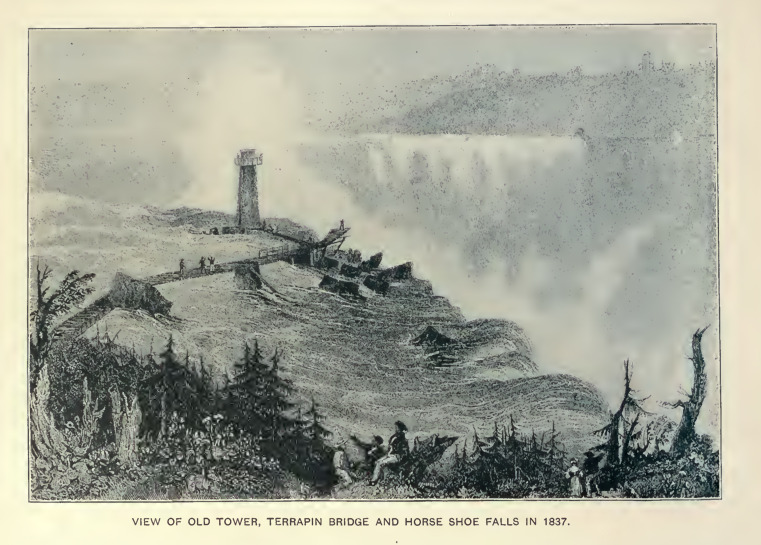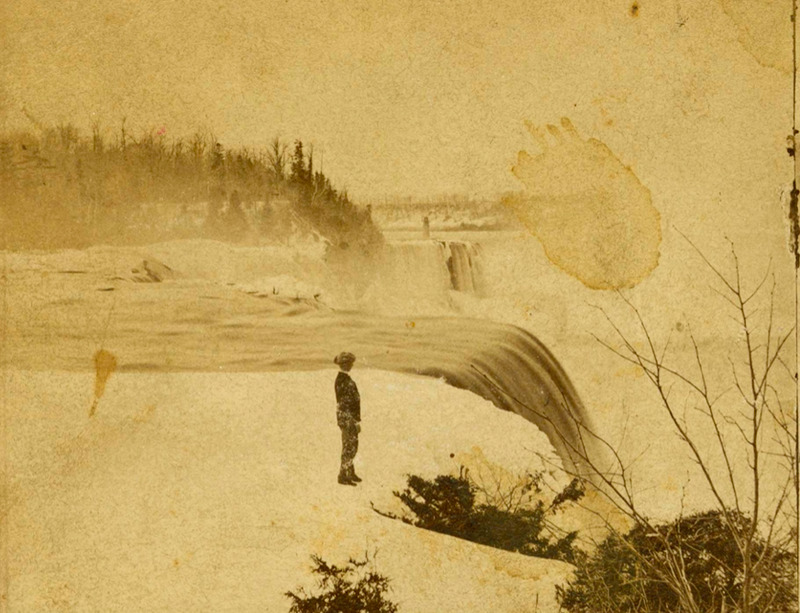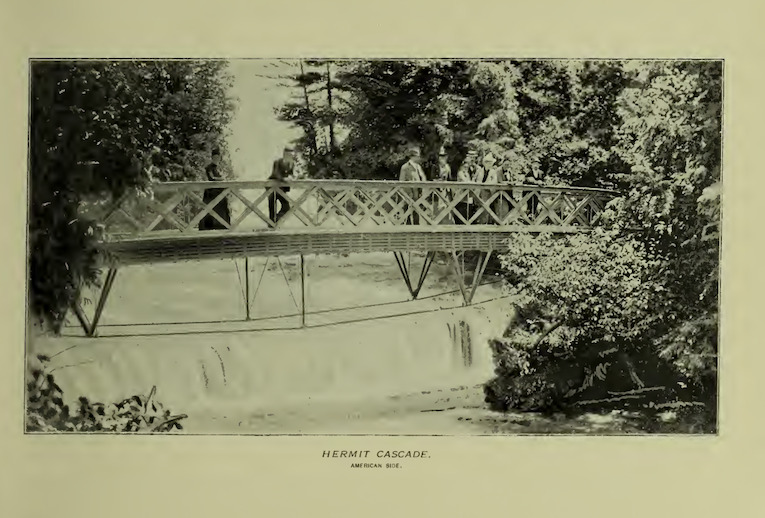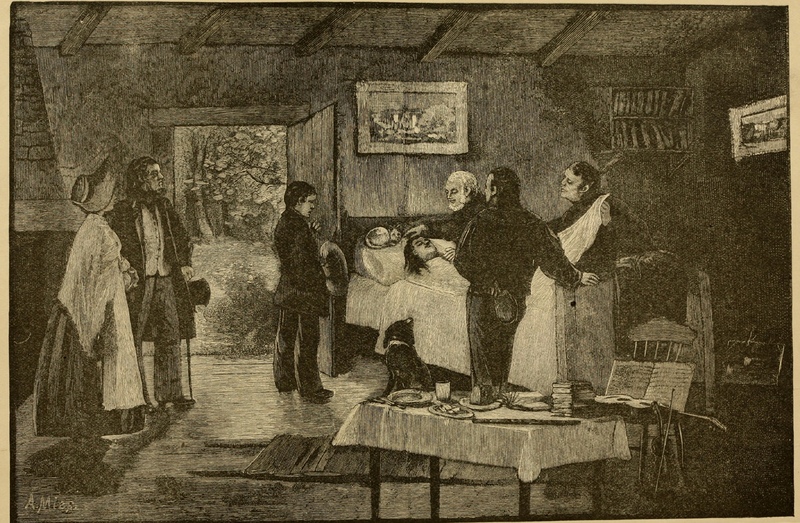The Hermit of Niagara
An interesting stranger appeared in Niagara Falls, New York on June 18, 1829. The tall, haggard looking man was dressed in a long, brown flowing robe. He borrowed books from the library and purchased a violin. His name was Francis Abbott, and he was born in 1800 in England. He was the son of a clergyman, John Abbott of Plymouth, England. Francis was supported by a stipend that he received from his homeland. It is said that Francis had been to Asia, Greece, Spain, Portugal and Italy as well as other countries. If he did speak to people, he was quite charming, but generally, he wouldn't talk at all and he sometimes carried a slate on which he would write rather than talk. Judge Samuel DeVeaux was probably the only person that he liked to talk to. They would discuss theology and foreign lands, but his conversations seemed to be tinged with a kind of sadness or despair. It was as if he carried a great secret sorrow within.
He lived in part of a log house near the head of Goat Island for two years and could be seen at all hours of the day or night pacing like a sentinel. At that time, there was a stick of timber that extended from the Terrapin Bridge, eight feet beyond the precipice. He would sit out on the end of this timber or hang by his hands or feet there. Abbott was deemed eccentric, but harmless. He moved from his Goat Island location and crossed the Bath Island Bridge where he built a cabin at Point View.
Every day, Francis would go down the ferry steps on the west side of Goat Island to bathe and this is how he accidentally drowned on June 10, 1831. A ferryman saw him duck his head in the water to avoid onlookers as he went by. On his next journey, he noticed that the hermit's clothes were still on the shore. His body was found at Fort Niagara. Citizens went to his cabin after his death. His books, music, flute, guitar and violin were scattered about. His dog and cat were waiting for him. Nobody will ever know the true story of the hermit of Niagara. He supposedly wrote many notes in Latin, but he would burn the notes almost as soon as they were written.
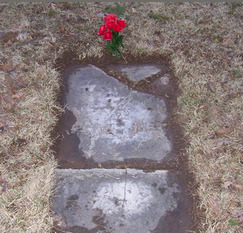
Francis Abbott was originally buried in the city cemetery on the corner of Main and Second Streets. He was moved to Oakwood Cemetery, Niagara Falls, Niagara County, New York, U.S.A. His grave bears a plaque which says: "Francis Abbott the Hermit of Niagara died July 31, 1831." This was purchased for his grave in 1998, by some visitors from Arizona who were moved by his story.
